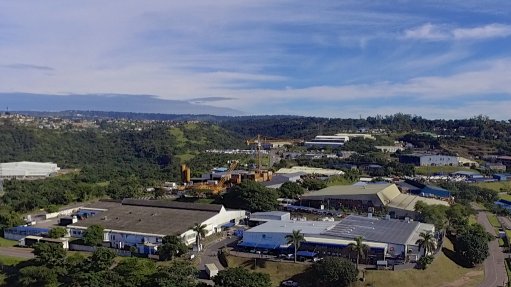
GREAT EXPANSION The expansion and establishment of the engineering division was prompted by the South African Automotive Masterplan
Owing to its heavy investment in the polyvinyl chloride (PVC) market, KwaZulu-Natal-based PVC compounder Continental Compounders has been able to continue supplying products to essential services during Covid-19.
“With PVC being used in bottles, electrical applications, agricultural applications and water pipe applications, there has been a need for PVC products within classed essential services items throughout the lockdown period,” says Continental Compounders commercial director Jaco Smith.
Smith notes that, of the above-mentioned sectors, the bottling sector has been the most supportive during the lockdown period. “There has been a surge in the supply of bottles, which could be because of the need for medical supplies and the production of hand sanitiser during the pandemic.”
He also states that there has been an increase in exports to countries in Southern Africa, possibly because it is easier to import goods from a neighbouring country, such as South Africa, than from anywhere else globally.
With import constraints on local companies because of the lockdown restrictions, Continental Compounder has been able to meet the needs of local companies and capitalise on local supply.
Meanwhile, with its expansion into the automotive and industrial goods industries, the company has expanded its business from supplying only PVC compounds to establishing an engineering plastic compounds division.
Smith says the division, founded in 2016, produces a range of high quality reinforced polypropylene and nylon compounds, which will be key in its planned expansion into new markets, and further expansion into other engineering plastics such as that of ABS (acrylonitrile butadiene styrene), while speciality masterbatches is also on the cards
Further, the polypropylenes and nylons can be used in industrial applications, such as electrical boxes, pool equipment, gate motors and a large range of general plastic products where specific requirements are needed for strength, flame retardancy, as well as specialities such as anti-microbial, anti-static and ultraviolet stability.
“With the automotive industry’s constant drive towards safety-critical needs, our company is constantly developing new ranges in the engineering plastic compounds division to meet these requirements. Current applications of modified polypropylenes and nylons in the automotive industry include instrument housing; heating, ventilation and air conditioning systems; bumpers and door panels,” Smith explains.
The expansion and establishment of the division was prompted by the South African Automotive Masterplan which has set ambitious targets in localisation. Its aim is to raise local content within the sector to 60% by 2035, he concludes.